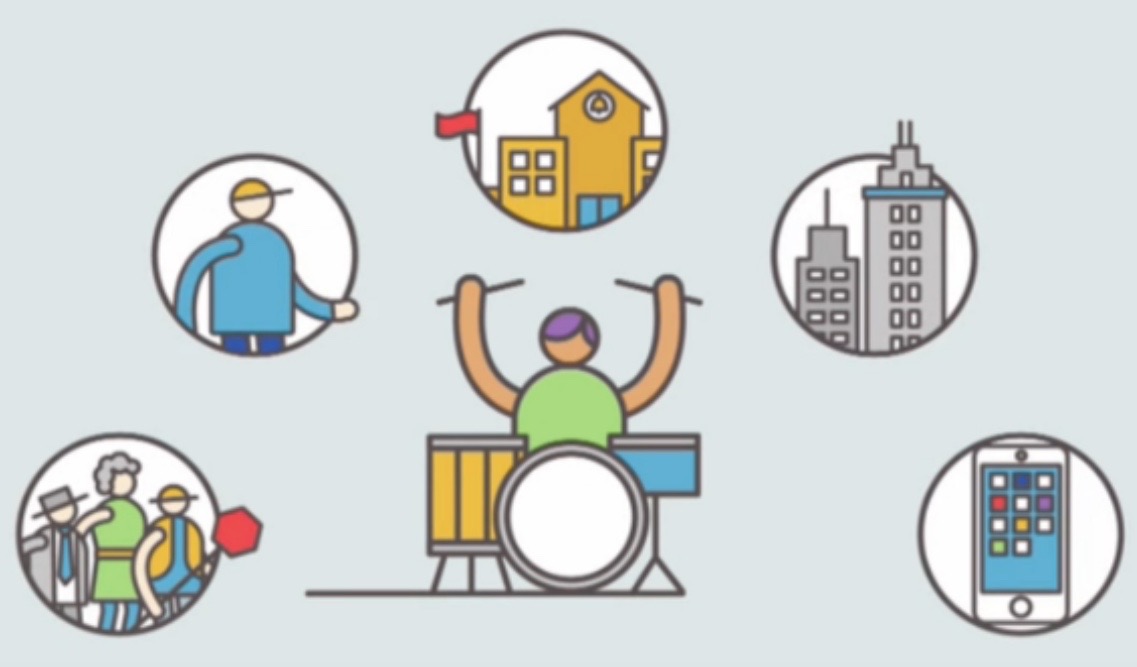Marina Gorbis Executive Director of the Institute of the Future, has posted these interesting thoughts in Medium.com, and has accepted to share them with CoachingZone. We thank her sincerely.
CoachingZone
If you’ve participated in recent discussions about the future of education, you have inevitably heard people argue about the purpose of education: “It should be about preparing young people to be good, educated, and engaged citizens,” some say. “We shouldn’t bend education to suit today’s needs of acquiring specific work skills that may be irrelevant very quickly. Instead, we should equip people with basic critical thinking skills and instill a desire to learn.”
Others insist that, “In an era of rising tuitions and high student debt, it is more important than ever to tightly connect education and income potential, so that students will be positioned to repay their loans and sustain their desired lifestyles.”
Do we really need to continue this debate?
Instead, can we envision a world in which learning is earning, and what you earn includes money but also much more than that? This simple but powerful idea underlies new research we at Institute for the Future are releasing today in partnership with the ACT Foundation.
We’ve traditionally conceived of working, learning, and living as separate experiences. We spent most of our childhood in school, our adult years working or looking for work, and then we squeezed our personal lives into whatever windows of time were left. We usually did education early in life, stopping when we reached the limits of our resources, whether they were time, money, or institutional offerings, and at that point were categorized as unskilled, blue collar, white collar, and professional workers. Such categories, in turn, circumscribed the kinds of lives to which we could aspire.
Our new map, titled Learning Is Earning presents a vision for a different future of education. It is based on an emerging learning economy in which learning, work, and daily life are tightly interconnected and learning serves as a currency for everything we do. In this future, unbounded learning resources are creating opportunities for continuous growth, opening the future to new possibilities and aspirations.
Today, the rapid growth of online knowledge resources, whether for fee or for free, is creating an abundance of learning resources in a variety of formats. These range from massively open online courses (MOOCs) to live-streaming experiences via platforms like Periscope and the treasure trove of video instructions and toolkits. Blends of digital and physical experiences are turning many physical spaces and casual interactions into learning opportunities. Our buildings can increasingly talk to us, sharing their history, stories of their former and current inhabitants, even their design specs and inspection records. Our recreational activities will blend the physical and digital worlds making it possible for people to learn in context — using mobile devices to help identify genus of trees or unfamiliar plants as people take leisurely walks in in a park. Meanwhile, computer algorithms — intelligent programs — match people to work and learning resources suited to one’s specific needs and personal styles. These matching algorithms and the digital trails they mine are the currency that will connect us across institutional silos if we use them well.
In this future, learning is not an either/or proposition — getting a better job or following one’s passions and curiosity. It is about earning a good life. This includes earning better health outcomes because you know how to analyze your own health data. It also means opening up better work opportunities because the contemporary work landscape simply requires you to continuously learn and upgrade your skills. It also earns you social capital because knowledge is a valuable resource one can share with others in his/her community. And most importantly, it equips you with skills to better navigate a myriad of complex life choices.
https://www.youtube.com/watch?v=DcP78cLPGtE&feature=youtu.be
Learning is indeed quickly becoming a currency that connects and permeates every aspect of our lives. And the good news is that we have more opportunities to acquire and trade this currency than ever before.

